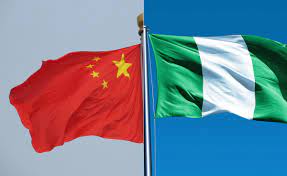
China has topped the list of top exporting nations to Nigeria but does not appear on the list of top importing countries, worsening trade disparities in both countries.
According to the National Bureau of Statistics (NBS) figures from the first quarter of 2022, Nigeria purchased nearly N1.51 trillion in commodities from China while exporting only N148 billion.
This equates to a deficit gap of N1.36 trillion, a 51% increase over the N900 billion recorded in the fourth quarter of 2021.
In the fourth quarter of 2021, Nigeria sold N739 billion in commodities to the Chinese market while buying N1.65 trillion.
Dr. Chinyere Almona, Director-General of the Lagos Chamber of Commerce and Industry (LCCI), commented on Nigeria's trade balance with China, "It is true that Nigerian imports from China have greatly expanded in the recent decade, displacing the West."
China has topped the list of top exporting nations to Nigeria but does not appear on the list of top importing countries, worsening trade disparities in both countries.
"The reasons can be linked to the Chinese government implementing international trade policies that purposefully subsidize Chinese exports to third-world countries, so making their goods more easily available and less expensive." Exporting from Nigeria is a difficult venture due to process bottlenecks.
"This must be handled in order to compete favorably, and some Chinese loans to Nigeria and other African countries are attached to projects that use Chinese materials." All of this increases Chinese exports to Africa."
Almona stated that "Nigeria must improve on its export infrastructure to enhance exports and hunt for cheaper sources of loans that are related to expanding production capacities in the country."
"Once we can produce more and export procedures are simplified, Nigeria will record larger exports and fewer imports, thereby balancing trade between the two nations."
Ugochukwu Uma, an economist, ascribed Nigeria's lower export numbers to China to the Russia-Ukraine crisis.
He stated that Russia was supplying crude to China at a lower price, which altered the attention of the world's largest crude importer.



























